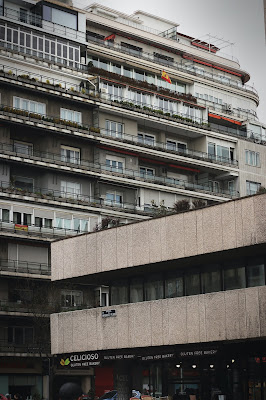New Year in Sol
Madrid closes iconic Sol metro station to beef up New Year security The metro station at Puerta del Sol, where thousands of people gather every year to welcome in the New Year , will be closed on Wednesday and Thursday evenings. Madrid’s regional government confirmed on Wednesday that the underground station would be closed between 9pm and 12.30am on Wednesday 30th December and from 9pm on Thursday 31st because of New Year's Eve preparations. Trains will pass through Sol station but will not stop. The closure will affect metro lines 1, 2 and 3. Those wishing to reach Sol are advised to get off at nearby metros such as Tirso de Molina on Line 1, Opera on Line 2 and 5 or Callao on Lines 3 and 5. Sol metro station will also open later than usual - at 7am - on January 1st. The closure has been ordered by Madrid’s police in a bid to limit overcrowding in Madrid’s busiest and most iconic meeting place, where every year, thousands of people ...


